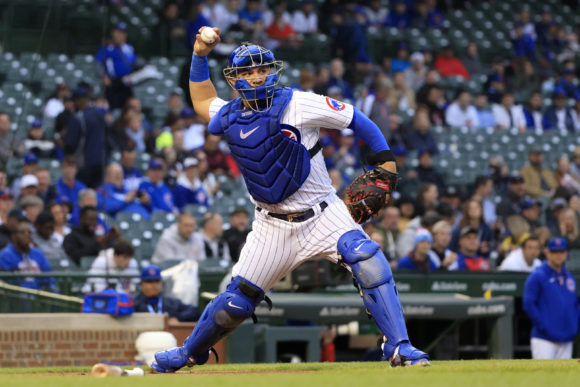Time, money, prospects, hope, and the allure of winning.
It all comes together in the next week of baseball season.
In every business we constantly weigh all of these factors in our daily decision making process.
Do we hire a person with a history of jumping from job to job, knowing he or she has attained skills that will make our business money in the short run? Do we take on a machining job that requires expensive new machines, knowing it may only last a short period?
Should we dump a business that has made us a pretty good living for several years for a new business that looks very promising but has a stiff learning curve?
Should we scrap a department of old reliable machines for pennies to go into something like 3D printing or service work?
These are brutal business decisions that keep one up at night.
Now put yourself in the position of the baseball general manager who must make the call in the next few days about trading a beloved star player with 60 games left on his contract, for untested young players. Or maybe it is reversed. You think you need a pitcher or catcher or shortstop to get your aging group of excellent players to the playoffs or hopefully to the World Series, but you will be trading away the young players you have developed and think will win you a pennant in two or three years.
Of course, there are the money issues. Signing stars to long-term contracts will cost hundreds of millions of dollars over five years or more. The players’ most productive years, if you are lucky, may be the next one or two, and a pitcher may be weeks away from a career ending arm injury.
All of these issues are compressed in the next week of the baseball season, after which the trading period ends, except for the scraps.
My team, the Chicago Cubs, faced this dilemma last year at this time. Beloved players like Anthony Rizzo, Kris Bryant, and Javy Baez, who were pivotal to the Cubs ending a 108-year drought in 2016 to win a World Series, were all traded for younger prospects who have yet to produce. This year, the Cubs’ all star catcher and team leader, Willson Contreras, is 60 games away from the end of his relatively cheap contract. He will bring a good haul from a contending team that needs him now.
Traded players like Rizzo and Baez and potentially Contreras could theoretically sign with their former team when they enter free agency, but in baseball that virtually never happens. They choose the team that offers them the best contract, knowing they will likely never have an opportunity like this for guaranteed riches again. The team that trades away a star player must gauge their players’ loyalty to the club and whether or not his best years are behind him.
In the next few days, it all comes together. Offers will be made and weighed. Players will pack their bags. Fans will be sad to see them leave and wonder if their team is getting taken in the transaction.
When you leave a job for a tempting new opportunity you feel similar doubt and hope. When you take a business contract knowing you may have miscalculated the risk, it is a similar feeling.
It’s fun, it’s sad, it’s business. It’s Baseball.
Question: What is the worst sports trade you can remember?
What was the best trade for your team?


4 Comments
Going back many years, the Cubs traded Hall of Famer Lou Brock to St Louis for pitcher Ernie Broglio who came up with a bum arm and barely won a game for the Cubbies. Total disaster.
We have now have the fascinating football situation in Cleveland. The Browns traded for DeShaun Watson a terrific quarterback from Houston, discarding a very capable qb in Baker Mayfield.
Watson cmes with issues and lawsuits pertaining to his sexual advances to his females massage therapists. Nothing has been proven, no criminal charges brought but a big cloud hanging over Cleveland’s potential star who could take them to a championship. That is a case of big risk and potentially big reward.
Your piece suggests that the Cubs seem to lead the league in bad trades, and you may be right. Lou Brock for Ernie Broglio is the classic bad example.
But you don’t mention the real losers are the teams that deal for former Cubs. You forgot to mention the dreaded “ex-Cub factor.” Any team that has as many as two ex-Cubs on its roster is doomed to never win a pennant, let alone a World Series. Even one day in a Cubs uniform is sufficient to doom the team foolish enough to pick up two ex-Cubs.
The Browns have 8 championships, the last achieved when I was 2 years old. Here’s to a “happy ending” in Cleveland.
Being an Orioles fan back in the day…
Easily the O’s getting future HOF OF Frank Robinson from the Reds in 1966 for two pitchers, and an OF.
Robby went on to win the ’66 Triple Crown & MVP, lead the Birds to four World Series in his six seasons.
Not to mention batting .300 / 500+ RBI’s / 175 Dingers.
Ah, those were the good old days for the former storied franchise.